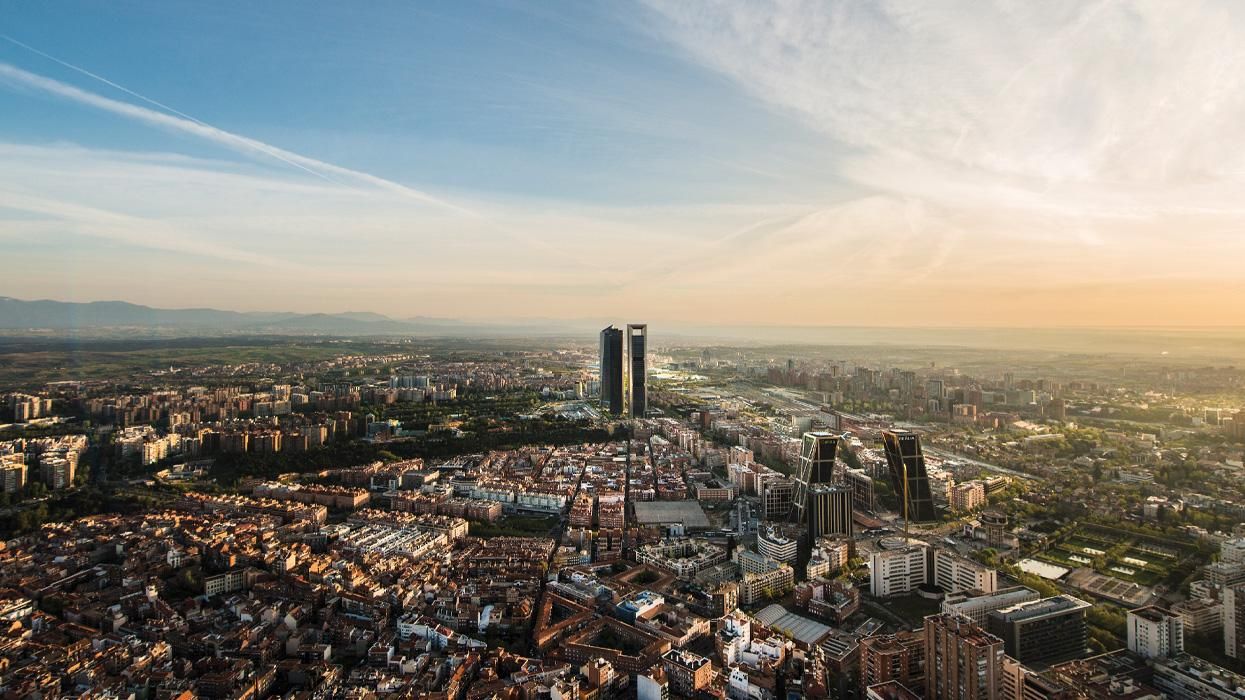
Howard Kingsnorth/Getty Images
Will improving the lives of queer citizens draw LGBTQ+ tourists?
January 27 2023 5:00 AM EST
September 07 2023 3:34 PM EST
By continuing to use our site, you agree to our Private Policy and Terms of Use.

Will improving the lives of queer citizens draw LGBTQ+ tourists?
Spain is one of the countries that’s seen a huge resurgence in travel since restrictions have been lifted. With the 2026 Gay Games in Valencia (and a rumored bid for an upcoming WorldPride by another Spanish city), queer travelers will be paying more and more attention to this vibrant, dynamic country in the coming years.
Miguel Sanz Castedo, the general director of Turespaña (the official tourism board of Spain), says promoting the country as LGBTQ-traveler-friendly isn’t his primary goal. Instead, he says, if Spain improves its standing for its own queer citizens, LGBTQ+ tourists will naturally follow.
“It’s about being an LGBTQ-accepting society,” Castedo said when we spoke at this year’s IGLTA. “We take pride that our biggest campaign is our laws and constitution — we have some of the most progressive legislation in the world for LGBTQ rights. As we speak, we are debating in Parliament about a trans rights law that is going to be one of the most open and diverse and advanced trans rights laws in the world — with self-determination of gender, by whomever wants to do it with no medical certification or a judge or a court saying that you can change your name or your gender identity. It’s not enough to market yourself as a safe LGBTQ destination. [W]e’re an LGBTQ-accepting destination. Whoever lives in Spain or comes to visit Spain has the right to be whoever they want to be.”
Castedo noted that Spain attracts many different segments of travelers — women, business travelers, people who travel because of gastronomy, families, and the LGBTQ+ community. And he thinks that over the last 10 years, things have changed. A decade ago, a lot of the queer travelers were gay cisgender men and some women, but that’s beginning to change.
“I think that now we have all understood that the LGBTQ+ community is comprised of a lot of people with different needs, with different backgrounds. When you would see the brochures for the LGBT community before — and it was gay men having a party somewhere or holding hands on a beach. Now you can see more diverse people, genderfluid, or trans people. And it’s not simply about going out at night and partying,” he said.
A lot of what Spain has to offer has good crossover appeal to queer travelers, according to Castedo. For example, destinations and attractions are creating products and experiences specifically addressed to the LGBTQ+ community. The Thyssen-Bornemisza National Museum in Madrid has a thematic guide focused on LGBTQ+ art and history, so visitors can view the permanent collection with a queer lens. In addition, there are film festivals, cultural events, music festivals, and hotels specifically for the LGBTQ+ community.
Spain is also focused on different types of LGBTQ travelers, from families to elderly community members.
“I think that this is a challenge for the hospitality industry across the world, but in Spain we take pride in being one of the favorite LGBTQ destinations in the world. It is a challenge that I think we are fulfilling,” he said.
For Castedo, the annual highlights are always the various Pride celebrations, especially in 2023 with travel restrictions lifted.

“Our celebrations are a time to celebrate with friends and to say that you are happy, but they are also a demonstration. There are still rights to be conquered. And there is still a fight to be fought, not just in our own communities but internationally. I think that that is the best excuse to travel somewhere — to show your support for the local communities while having fun,” he said.
Castedo also sees an interesting blurring between LGBTQ+ events and nonqueer events. He feels that any music festival in Spain is a bit queer, and mentions friends of his who attended a Bilbao festival for the Virgin Mary — and raved that it was the queerest party they’d been to.
“So, I wouldn’t look specifically for queer events. I would look for big events and you will find a queer corner of it,” he explained.
Castedo recommended a few itineraries that give a traveler a true taste of the country.

First start in the Andalusia region in the south of Spain, where Tarifa (above) is home to flamenco and the area has great beaches, villages, and food. There’s Cádiz, the town of castles, which they call Little Havana because that was where the ships left from Spain to the Americas. Then head up to Seville, which is a gem and a beautiful modern city — but also very traditional. After that, explore Granada and Córdoba and end in two lesser-known destinations in Spain: Úbida and Baeza — two Renaissance cities surrounded by more than 10 million olive trees.
In addition, he recommends a tour of northern Spain: “It’s green, it’s rocky, it’s cooler. The gastronomy is just fantastic.” And a trip through the middle of Spain, beginning in Madrid (opening shot), which is located on a plateau 600 meters above sea level — it is the highest capital in Europe. It’s warm in the summer but gets cold winters.
“What you find is a territory that is flat. You can drive for hours — and what you see is castle after castle and big cathedral after big cathedral — surrounded by vineyards and wheat fields. I think that is a real step back in time, and for many of my American friends who have come to Spain, it is the most amazing trip because they almost feel like they are with Don Quixote, riding a horse. It’s definitely off the beaten track.”